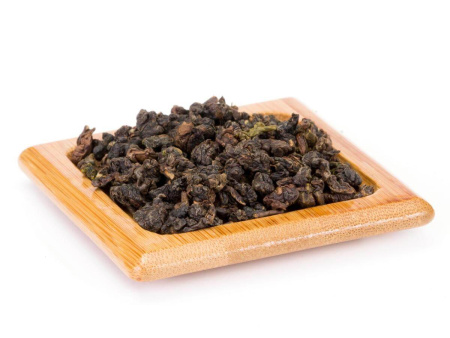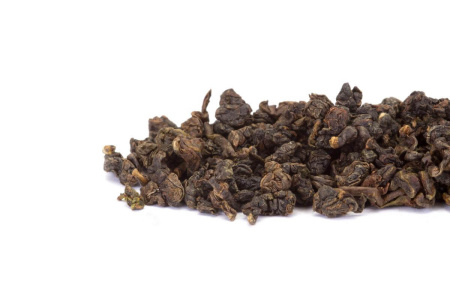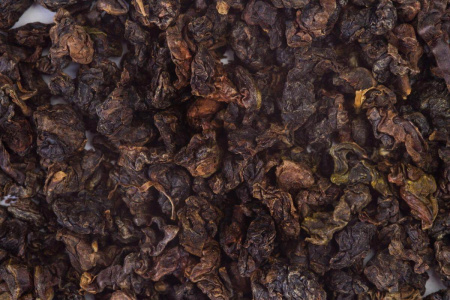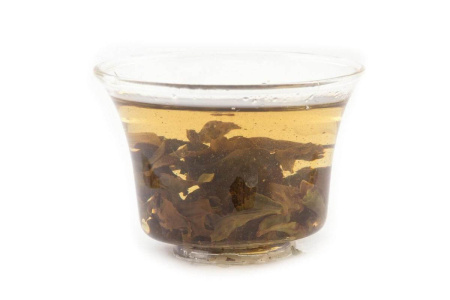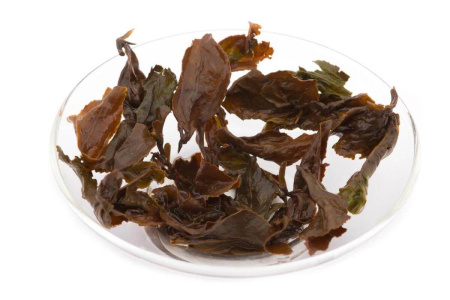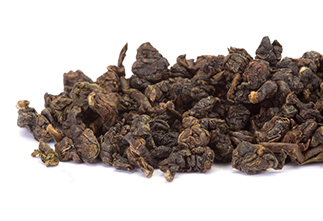-
10 Saturation
-
10 Aftertaste
-
10 Aroma
-
10 Effect
-
10 Balance
-
10 Body
The name " Jiaye Longcha " means " Beautiful Leaf Dragon Tea ," and is originally written as 佳叶龙茶 (jiāyè lóngchá). It originates from Nantou County (南投, nántóu), Taiwan, and is classified as a gaba tea.
They are so named because of the amino acid GABA they contain, abbreviated as GABA . According to the standard, GABA should be at least 150 mg per 100 g of dry weight.
The technology for producing gaba tea was developed by a group of Japanese researchers led by Mr. Tsushida in 1984. They discovered that if pre-wilted young leaves are placed in a chamber with nitrogen or carbon dioxide, the amount of gaba increases significantly after 5-10 hours, while its precursor, glutamic acid, decreases. However, the amount of other important tea substances (caffeine and catechins) does not change significantly.
Appearance, aroma and taste
This oolong tea features small, hemispherical pearls of uniform brown tones. Its aroma is soothing, and its flavor profile is medium-bodied, with fruity undertones and a slight acidity, followed by a floral, honeyed finish.
First published on 18.02.2018.
Copyright © Chaline.Ru
|
Name in Chinese
|
佳叶龙茶 |
|
Pinyin
|
jiāyèlóngchá |
|
Country
|
Taiwan |
|
Type of tea
|
Gaba Tea |
|
The tea is suitable.
|
for a bathhouse, for evening tea (calming), for the tea ceremony (ceremonial), post-workout (recovery), to alter consciousness (intoxicating tea) |
- Reviews
- Vkontakte
GABA tea got its name due to the high content of gamma-aminobutyric acid (GABA). Gamma-aminobutyric acid, in combination with other components of tea, has a completely amazing and complex effect on the human body. It lowers blood pressure, helps with atherosclerosis, headaches and dizziness, seasickness, stimulates brain activity in particular and the dynamics of nervous processes in general, improves thinking and memory, relieves hangover syndrome, has a high antioxidant effect - which means that it can have a preventive anti-cancer effect. Gamma-aminobutyric acid is similar in its effect to tranquilizers (diazepam, phenazepam), but is not addictive.





